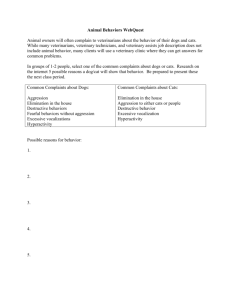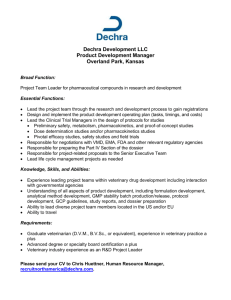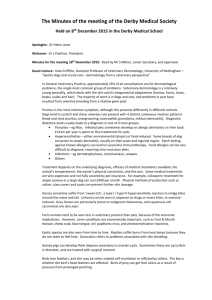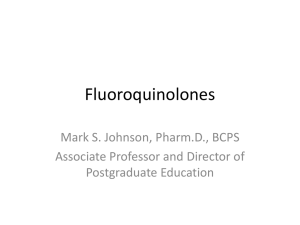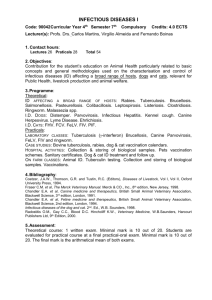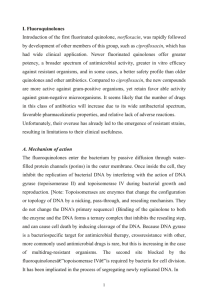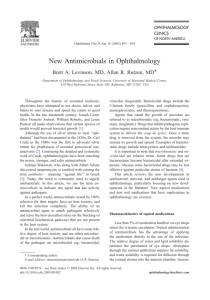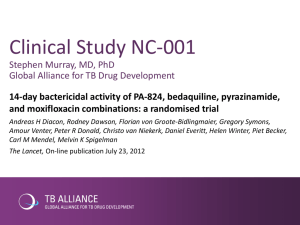Offer of a project in veterinary pharmacology for the degree of a
advertisement
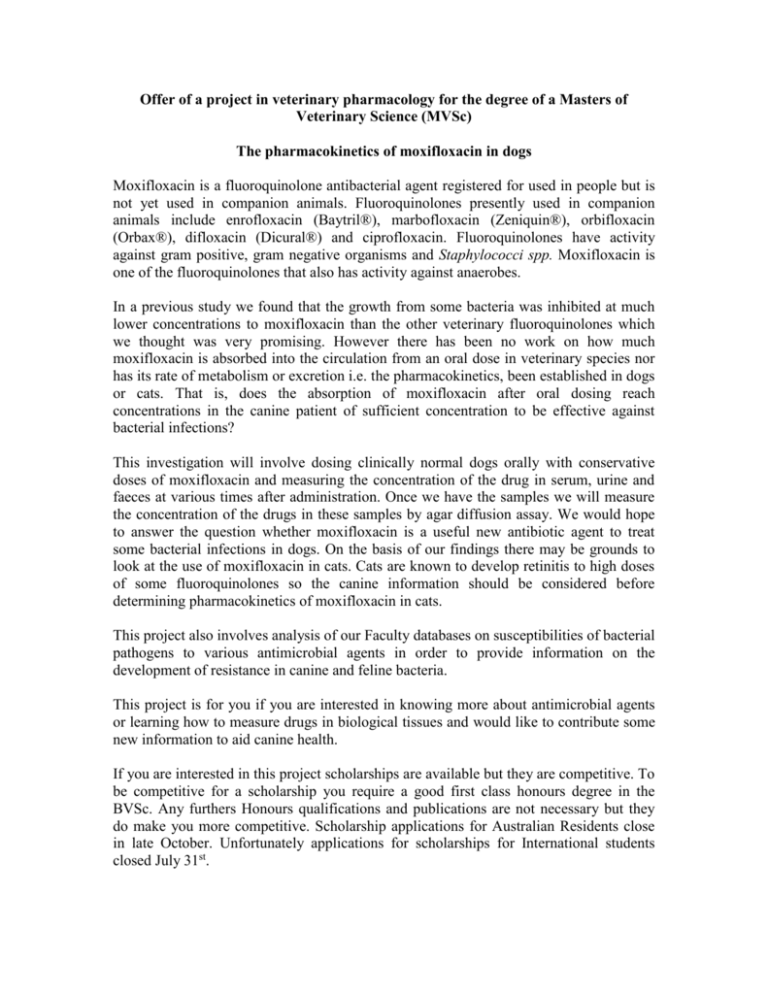
Offer of a project in veterinary pharmacology for the degree of a Masters of Veterinary Science (MVSc) The pharmacokinetics of moxifloxacin in dogs Moxifloxacin is a fluoroquinolone antibacterial agent registered for used in people but is not yet used in companion animals. Fluoroquinolones presently used in companion animals include enrofloxacin (Baytril®), marbofloxacin (Zeniquin®), orbifloxacin (Orbax®), difloxacin (Dicural®) and ciprofloxacin. Fluoroquinolones have activity against gram positive, gram negative organisms and Staphylococci spp. Moxifloxacin is one of the fluoroquinolones that also has activity against anaerobes. In a previous study we found that the growth from some bacteria was inhibited at much lower concentrations to moxifloxacin than the other veterinary fluoroquinolones which we thought was very promising. However there has been no work on how much moxifloxacin is absorbed into the circulation from an oral dose in veterinary species nor has its rate of metabolism or excretion i.e. the pharmacokinetics, been established in dogs or cats. That is, does the absorption of moxifloxacin after oral dosing reach concentrations in the canine patient of sufficient concentration to be effective against bacterial infections? This investigation will involve dosing clinically normal dogs orally with conservative doses of moxifloxacin and measuring the concentration of the drug in serum, urine and faeces at various times after administration. Once we have the samples we will measure the concentration of the drugs in these samples by agar diffusion assay. We would hope to answer the question whether moxifloxacin is a useful new antibiotic agent to treat some bacterial infections in dogs. On the basis of our findings there may be grounds to look at the use of moxifloxacin in cats. Cats are known to develop retinitis to high doses of some fluoroquinolones so the canine information should be considered before determining pharmacokinetics of moxifloxacin in cats. This project also involves analysis of our Faculty databases on susceptibilities of bacterial pathogens to various antimicrobial agents in order to provide information on the development of resistance in canine and feline bacteria. This project is for you if you are interested in knowing more about antimicrobial agents or learning how to measure drugs in biological tissues and would like to contribute some new information to aid canine health. If you are interested in this project scholarships are available but they are competitive. To be competitive for a scholarship you require a good first class honours degree in the BVSc. Any furthers Honours qualifications and publications are not necessary but they do make you more competitive. Scholarship applications for Australian Residents close in late October. Unfortunately applications for scholarships for International students closed July 31st. For more information contact Dr Merran Govendir, Lecturer in Veterinary Pharmacology, M.Govendir@vetc.usyd.edu.au (02) 9351 5442.
